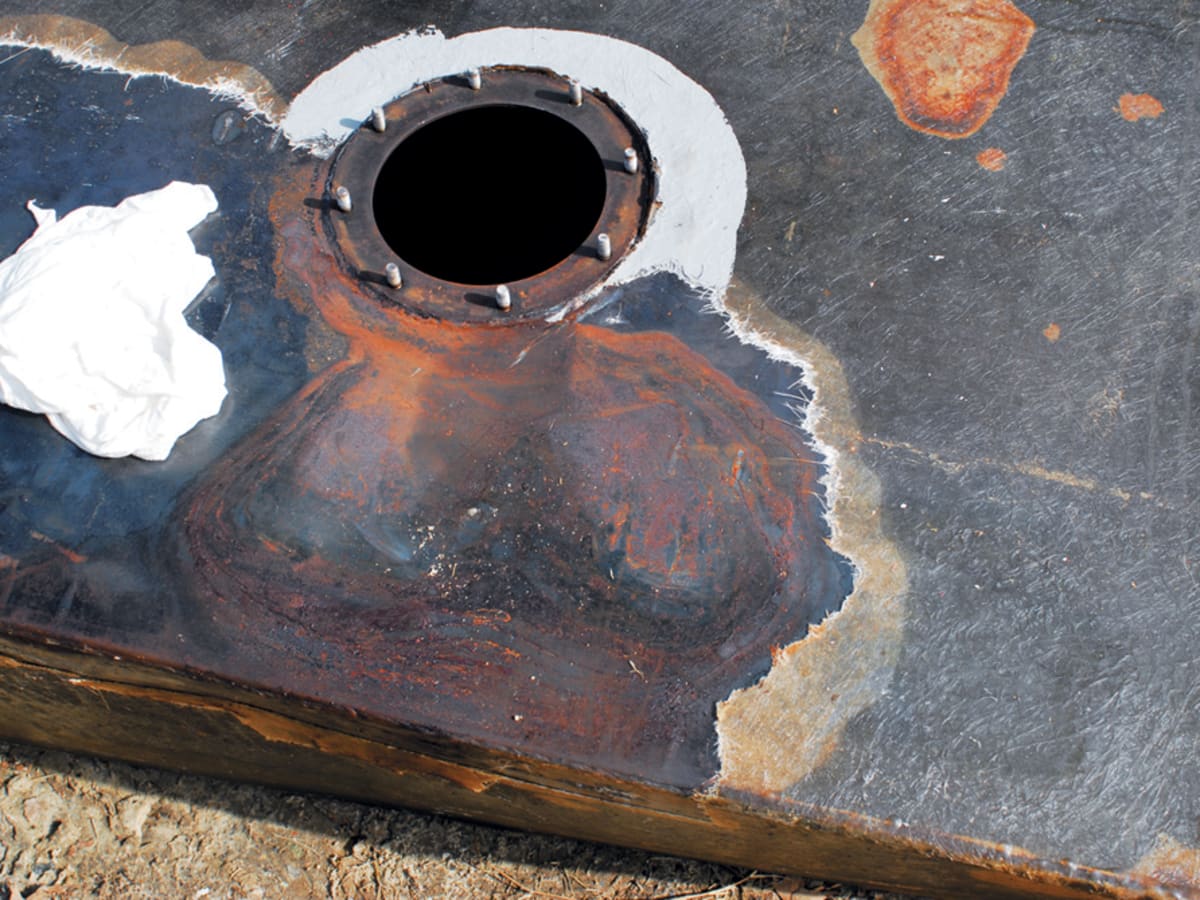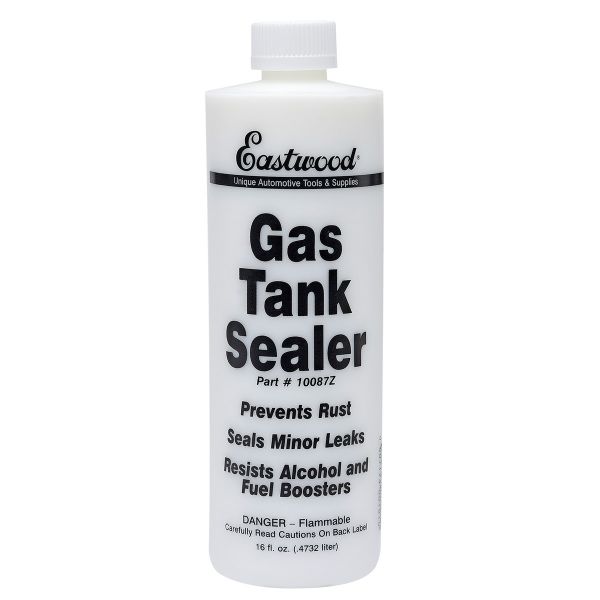To keep your gas tank from rust after cleaning, apply a high-quality fuel tank sealer immediately and follow the instructions carefully. Cleaning a gas tank is a crucial part of maintaining your vehicle, and it’s important to take care of it properly to prevent rust from forming.
Rust can cause serious damage to your car’s engine and other parts, and ultimately lead to expensive repairs. After cleaning your gas tank, it’s essential to apply a fuel tank sealer to keep it from rusting. This will help to ensure that your vehicle remains in good working order, providing reliable transportation for years to come. By taking the time to properly care for your gas tank, you can avoid costly repairs and keep your car running smoothly.

Credit: www.passagemaker.com
Understanding Rust Formation In A Gas Tank
Rust in gas tanks is caused by moisture and oxygen contact causing oxidation of iron components. The most common signs of rust in gas tanks are rust flakes, clogged fuel filters and decreased engine power. Rust can also cause the tank to leak and cause engine damage.
To keep your gas tank rust-free after cleaning, ensure it is dry, use rust inhibitors, and store the tank in a dry space with low humidity. This will help prevent rust and keep your gas tank in good condition for longer.
Regular maintenance and inspection of your gas tank is also advisable to detect any potential rust formation early.
Tips For Cleaning Your Car’S Gas Tank
Cleaning your car’s gas tank is an essential maintenance task, as it ensures that your engine runs at optimal performance. Neglecting the gas tank can lead to rust build-up, which can damage your vehicle’s fuel system and lead to expensive repairs.
Cleaning your gas tank involves several steps, such as draining the tank, removing debris and rust, and rinsing it with a fuel system cleaner. To ensure safe and effective cleaning, it’s important to follow manufacturer guidelines, wear protective equipment, and avoid smoking or using open flames near the gas tank.
Regular gas tank cleaning can prevent rust build-up and extend the life of your vehicle’s fuel system, so be sure to make it a part of your car maintenance routine.
How To Slow Down Rust in Your Gas Tank and Keep Your Old Gas Tank Episode 59 Manic Mechanic
Steps For Protecting Gas Tanks From Rust After Cleaning
After cleaning your gas tank, it’s important to prevent rust formation to maintain its longevity. To protect against rust, use protective coatings like paint, epoxy or varnish, and additives like rust inhibitors. When choosing a protective coating, consider the type of fuel your tank will contain, as some coatings are specifically formulated for different fuel types.
It’s also important to ensure that the tank is fully dry before applying any coating. Additionally, avoid any abrasive or corrosive materials during the cleaning process, as they can damage the inside of the tank, leading to rust formation. By following these steps and precautions, you can effectively prevent rust from forming in your gas tank and ensure that it continues to function properly for years to come.
Best Practices For Maintenance
Regularly checking the gas tank for rust is essential to avoid future car and budget troubles. To maintain a rust-free gas tank, make sure to keep it full, clean the tank regularly, and add rust inhibitors to the fuel system.
To prevent rust from occurring, store your car in a dry garage or add airtight covers to the gas tank. For long-term maintenance, drain the gas tank and replace the fuel filter every two years. Remember to handle the gas tank with care and avoid overfilling the tank.
Following these steps will help keep your gas tank free of rust and extend the lifespan of your vehicle.
Frequently Asked Questions For How To Keep Gas Tank From Rust After Cleaning
How Do I Prevent Rust In My Gas Tank After Cleaning?
To prevent rust, coat the inside of the gas tank with a sealant immediately after cleaning. Make sure the tank is completely dry before applying the sealant. You can also use an anti-rust solution if you prefer.
Can I Use Vinegar To Clean My Gas Tank?
Yes, vinegar can be used to clean a gas tank. The acidity in vinegar breaks down rust and other deposits in the tank. Mix vinegar with water in a 1:1 ratio and pour it into the tank. Let it sit for a few hours before rinsing thoroughly.
How Often Should I Clean My Gas Tank?
It is recommended to clean your gas tank every 2-3 years or 30,000-40,000 miles. Regular maintenance and cleaning can prolong the life of your gas tank and prevent issues such as rust buildup and fuel contamination.
What Do I Do If My Gas Tank Is Already Rusty?
If your gas tank is already rusty, you can try to remove the rust using a rust dissolver solution. Follow the instructions on the product label and rinse the tank thoroughly before applying a sealant or anti-rust solution to prevent future rusting.
Conclusion
To conclude, keeping your gas tank from rust after cleaning is essential to maintain the longevity of your vehicle. Whether you use a commercial rust inhibitor, fuel stabilizer, or simply keep your gas tank filled, these tips will help prevent rust from forming and save you from costly repairs in the future.
Remember to always clean your gas tank before following any of these steps, and to keep your gas tank free of debris, water, and ethanol. By taking these precautions, you can avoid the headache of dealing with rust and keep your car running smoothly for years to come.
So, don’t wait until it’s too late, make sure to take these steps to keep your gas tank rust-free.

Leave a Reply